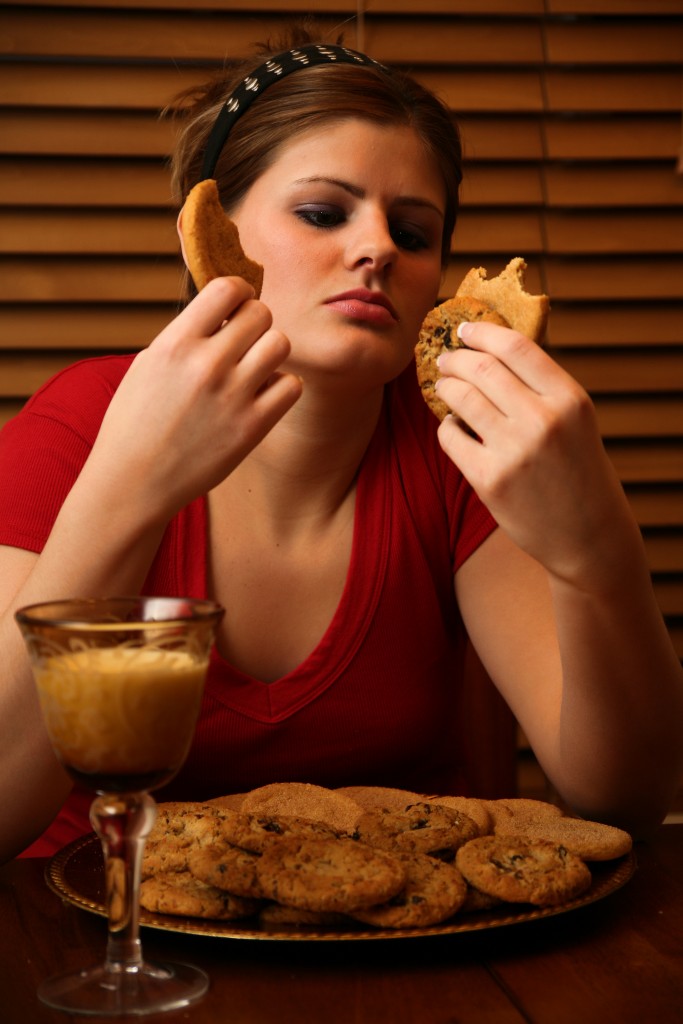It’s not uncommon for people to turn to food during stressful times. When the stay-at-home orders started in March, many of us eased our boredom by trying out different desserts and drinks that trended on the internet, ordering takeout, or binge-watching Netflix shows with buckets of popcorn and cans of soda.
Even before COVID-19, people are already so hooked to food. We see it as a relief from our problems, or as a form of entertainment, so much so that we’ll eat even if we’re not hungry.
But a happy tummy doesn’t always equate to a happy brain. According to a 2012 study, stress and eating poorly can lead to an increased risk for anxiety and depression. The effects of a high-fat diet are found to overlap with the effects of chronic stress, which potentially explains why people who overeat unhealthy foods are more likely to suffer depression in turn.
Besides that, people who overeat may also become obese. And as per the Anxiety and Depression Association in America, obese people who have binge eating disorders (BED) are usually dealing with a mental health illness, including anxiety and depression.
Overeating vs. Binge eating
Overeating isn’t necessarily the same as binge eating. Anyone can overeat, especially when stressed out, attending parties, or watching movies.
But if you tend to turn to food to ease your emotions, you may be experiencing what’s called depressive overeating. Below are the symptoms of such:
- Having difficulty to stop eating
- Repeatedly and quickly consuming large amounts of food
- Eating even when you’re full
- Never feeling sated
- Feeling emotionally detached while eating
- Feeling guilty or regretful after overeating
Even if you overeat on numerous occasions, it still doesn’t mean that you have BED. But when you overeat frequently, feel like you’ve lost control, and suffer from an emotional breakdown afterward, that could be a sign that you’re already dealing with the eating disorder. If you answer “yes” to the questions below, consider visiting a trusted binge eating disorder clinic as soon as possible:
- Do you have episodes of overeating in a short period while feeling like you’ve lost control over your eating more than once a week?
- Do you feel like your eating habits are going out of your control?
- Do you feel guilty, ashamed, or regretful after overeating?
- Do you often eat even when you’re not hungry?
- Do prefer eating alone because you’re embarrassed about how much you’re eating?
As you can see, there are clear distinctions between depressive overeating and BED. When you overeat out of depression, or because you’re not focused on your food because you’re having fun with something else, you don’t usually feel out of control or embarrassed. On the other hand, when overeating is something you do on a per-episode basis, followed by extreme distress and embarrassment, then it’s most likely a behavioral issue.
Causes of Binge Eating Disorder
 Aside from depression, BED can also be hereditary, just like most other diseases. The same genes involved in depression may also play a role in eating disorders. In addition, BED might also be linked to changes in the brain chemicals that trigger depression as well. This could explain why we use food to numb the emotions we feel when we are depressed. Thankfully, there are treatments for both conditions, but it’s more important to seek help for depression first. Recovering from BED while you also have depression will be more difficult.
Aside from depression, BED can also be hereditary, just like most other diseases. The same genes involved in depression may also play a role in eating disorders. In addition, BED might also be linked to changes in the brain chemicals that trigger depression as well. This could explain why we use food to numb the emotions we feel when we are depressed. Thankfully, there are treatments for both conditions, but it’s more important to seek help for depression first. Recovering from BED while you also have depression will be more difficult.
How to Stop Stress Eating of Depressive Overeating
If you’re still on the safe side of overeating, adopt these habits now before it becomes worse and out of your control:
- Check yourself. Before eating, pay attention to how you’re feeling. Are you actually hungry, or just stressed, bored, anxious, or sad? Identifying your emotions will help you understand why you want to eat.
- Make food harder to reach. Keeping overindulgent treats within your sight increases the temptation to consume them frequently.
- Maintain a healthy meal schedule. Eat three full meals a day to curb your appetite and prevent snacking too frequently.
- Make your own meals. Cooking will encourage you to eat healthier, and help you gain a sense of control over your eating. It’s also a fun activity that can ease your stress!
- Stay hydrated. Dehydration can alter your mood, which may also affect your eating habits.
- Exercise. Even quick and easy workouts will boost your mood and reduce your stress, making you less likely to overeat.
- Be kind to yourself. Care for your well-being, and prioritize your overall health, including your mental health. When you have a healthy mind, you’re more likely to adopt healthy eating and stress management habits, pushing you to be more in-control and self-aware.If you feel like your everyday stress is starting to affect your eating patterns, let this guide help you understand your mind and body a bit more, and teach what to do to get better.













